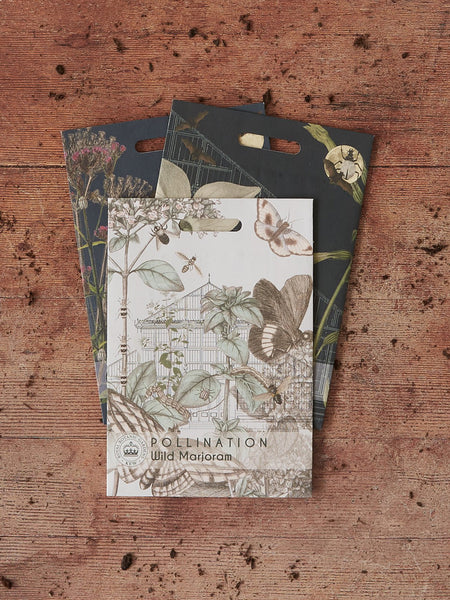Kew Pollination Collection Borage Seeds
£3.99
A beautiful hardy annual herb with rough leaves covered in silvery hairs and the most attractive celestial-blue flowers.
Nectar rich borage flowers are particularly attractive to pollinating insects, including bees that make distinctively flavoured borage honey. This versatile upright herb has a multitude of uses - add the cucumber-flavoured leaves to summer drinks and salads, grow it as a companion plant close to other crops to attract pollinating insects, and at the end of the season plants make a useful bulky addition to your compost heap.
- Sow from March to May in full sun
- Height: 60cm. Spread: 45cm
- 1 packet contains approximately 100 seeds
- Attracts bees and other pollinators
- Useful culinary and medicinal herb
I aim to pick and pack your order within 24 hours of receipt and you should expect your parcel to arrive within 3–5 working days under normal circumstances. Orders placed on a Friday may not be sent until the following Monday. All delivery charges are calculated and displayed at the checkout.
- If your order can safely be sent in an envelope or small packet, it will be sent by Royal Mail, usually via a tracked service. This doesn't require a signature but does let you know where your parcel is.
- Larger orders will be sent either with Royal Mail or FedEx depending on weight and contents. Tracking details will be sent via SMS and/or email, if these contacts are provided.
- Large or heavy items will be sent via FedEx or an equivalent courier with tracking provided.
- For deliveries to Northern Ireland, the Isle of Man, Channel Islands and international addresses, please drop me a line at atyourservice@dancoopergarden.com letting me know where you are in the world and what you'd like to purchase. I will check the items are allowed to be shipped to your location and get a cost for your approval.
Should you need to return an item, drop me a line at atyourservice@dancoopergarden.com within 14 days of receiving your purchase, providing your name, order number and the reason for your return. I will let you know how to return your item.
Please visit my Delivery & Returns page for more detailed information.
Direct sow borage seeds outdoors where they are to grow from March to May. Borage seed germinates best at a temperature of around 15-25C. Borage will grow in most soils but prefers a position in full sun on well-drained soil which has been raked to a fine tilth. When growing borage, sow seeds thinly, at a depth of 6mm in drills spaced 30cm apart and cover the seed with its own depth of soil to exclude light. Water the ground regularly, especially during dry periods. When seedlings are large enough to handle, thin them to 23cm apart.
Borage plants will self-seed freely if left unchecked but are neither invasive nor unwelcome in most cases. If seedlings are not wanted, deadhead as the blooms fade or weed them out whenever they appear.
For more help and advice on growing plants from seed, read my handy guide.
Allergens
A great many of our favourite garden plants can be harmful if eaten or handled without gloves. This is rarely a cause for concern but it's always good to know what you are dealing with.
In the case of borage, allergic reactions are uncommon. Borage is a fine source of calcium and potassium and is recommended for toning up the glandular system, and all bronchial, lung and chest disorders. However, you should always check with your doctor before using herbs for medicinal purposes. Borage flowers are edible and are wonderful used to garnish summer drinks and salads.














